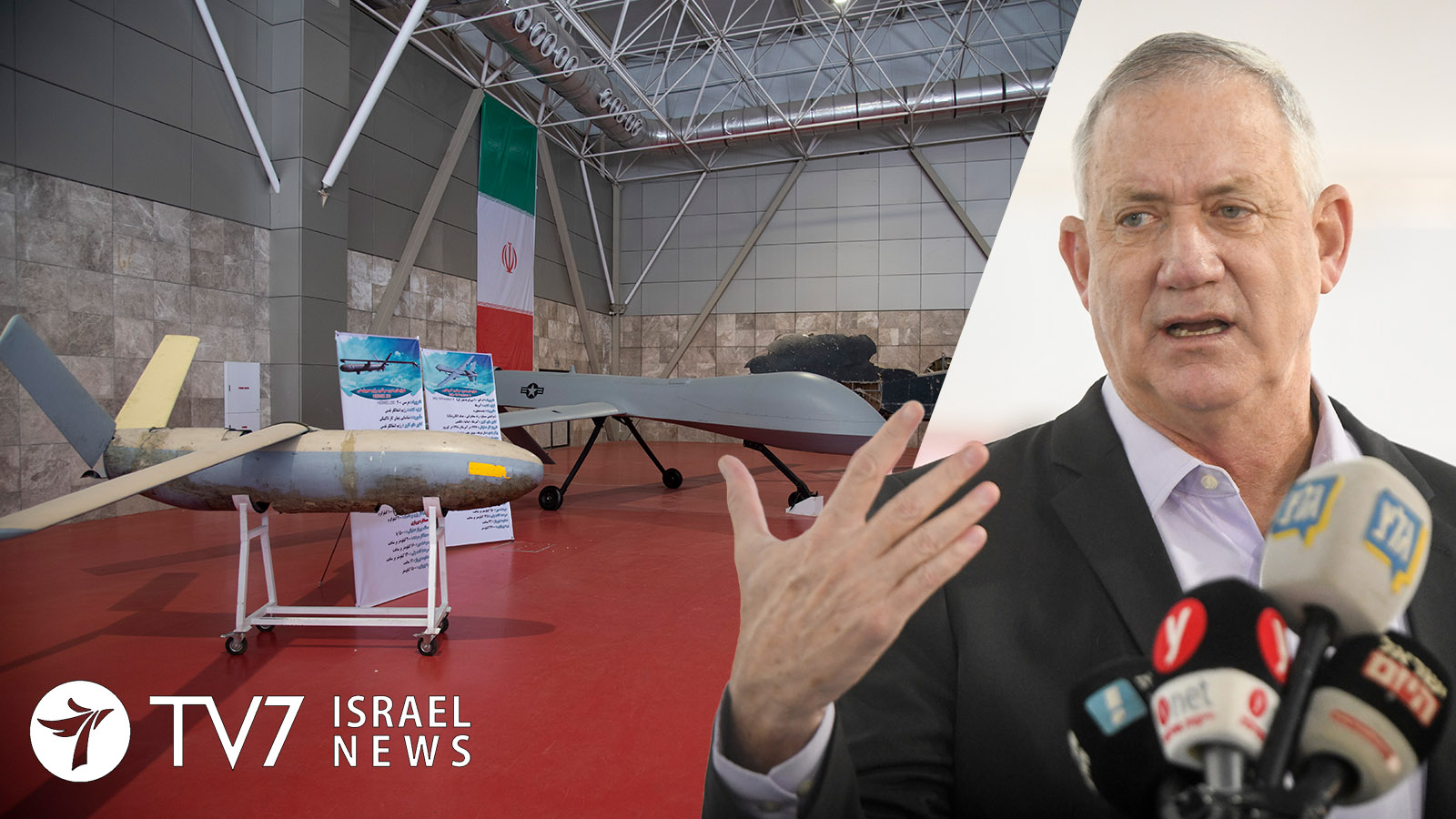Israeli Defense Minister Benny Gantz has accused Iran of providing foreign militias with training to operate Unmanned Aerial Vehicles (UAVs) at an airbase north of the Islamic Republic’s city of Isfahan.
By Erin Viner
“Terrorists from Yemen, Iraq, Syria and Lebanon” are being “trained to employ UAVs produced by Iran” at a base Minister Gantz said is called Kashan, which he described as “a key point from which Iranian aerial terrorism is exported to the region.”
Lt. Gen. (res) Gantz, who is a former IDF Chief of Staff and head of the Blue and White political party, made the revelation during his remarks at the annual conference of the International Conference on Counter-Terrorism (ICT) at the Interdisciplinary Center (IDC) Herzliya of Reichman University.
“Iran has developed ‘proxy terror’ which is perpetrated by organized ‘terror armies’ which are assisting Iran in achieving its economic, political and military goals,” said Israel’s top defense chief, according to a transcript TV7 received from the Defense Ministry. He added that the UAVs have “a range of thousands of kilometers” and represent “one of the most significant tools employed by Iran and its proxies.”
The Islamic Republic is also working to “transfer know-how that would allow the manufacturing of UAVs in the Gaza Strip” on Israel’s southern border, Gantz told those gathered.
The Israeli Defense Ministry provided satellite images showing UAVs on the runways at Kashan.
There has been no immediate comment from Iran.
Turning to the damning International Atomic Energy Agency (IAEA) reports published in recent days, which for the first time in a decade cast doubt on the civilian nature of Iran’s nuclear program and the various violations perpetrated by Iran such as the attack on Mercer Street, Gantz said, “Iran does not honor the agreements it has signed, and there is no reason to believe that it will honor any future agreements.”
“The time has come for action. I call on the countries that are still members of the nuclear agreement to impose the sanctions set out in the agreement. It’s time to make a ‘snapback,’” he said.
Minister Gantz underscored that, “the efforts against Iran, as well as against Afghanistan and other countries, are not just interests for the Middle East or for the West. Proxies can be set up anywhere in the world. This is the time for all the world’s powers, including Russia and China, to join the campaign to maintain global stability.”
Gantz’ statements come in the wake of heightened global scrutiny on Tehran over its suspected drone attack on the Mercer Street petroleum product tanker off Oman on 29 July. The explosion on the Liberian-flagged vessel, which is Japanese-owned and managed by the Israeli-owned Zodiac Maritime firm, killed 2 British and Romanian crew members. The attack occurred on a key oil shipping route near the mouth of the Gulf.
The United States military said explosives experts from the Ronald Reagan aircraft carrier – which was deployed to assist the Mercer Street – concluded the blast was caused by a UAC manufactured in Iran.
Other world powers also accused the Islamic Republic of being behind the attack, which Tehran had denied.
The Foreign Ministers from the Group of Seven wealthy economies said Iran was threatening international peace and security and that all available evidence showed it was behind an attack on the Mercer Street tanker.
“All available evidence clearly points to Iran. There is no justification for this attack,” said the statement, issued by current G7 chair, Britain.
The United Kingdom also raised the issue at a closed-door meeting of the United Nations Security Council.
